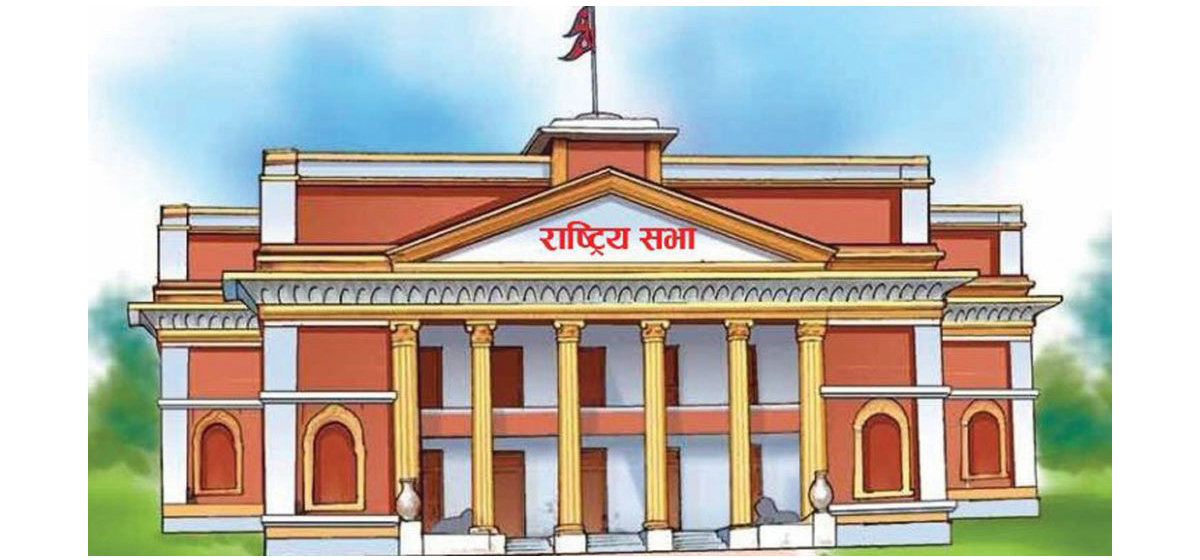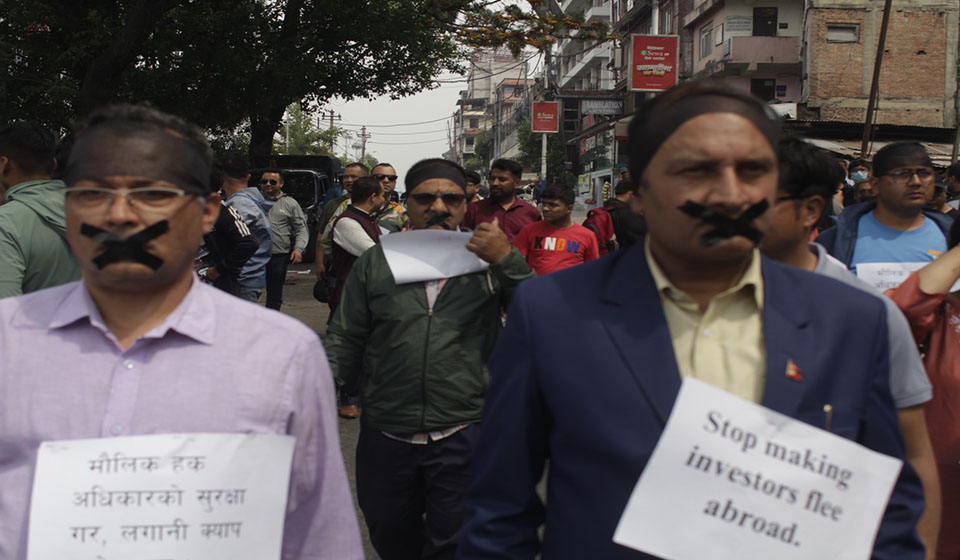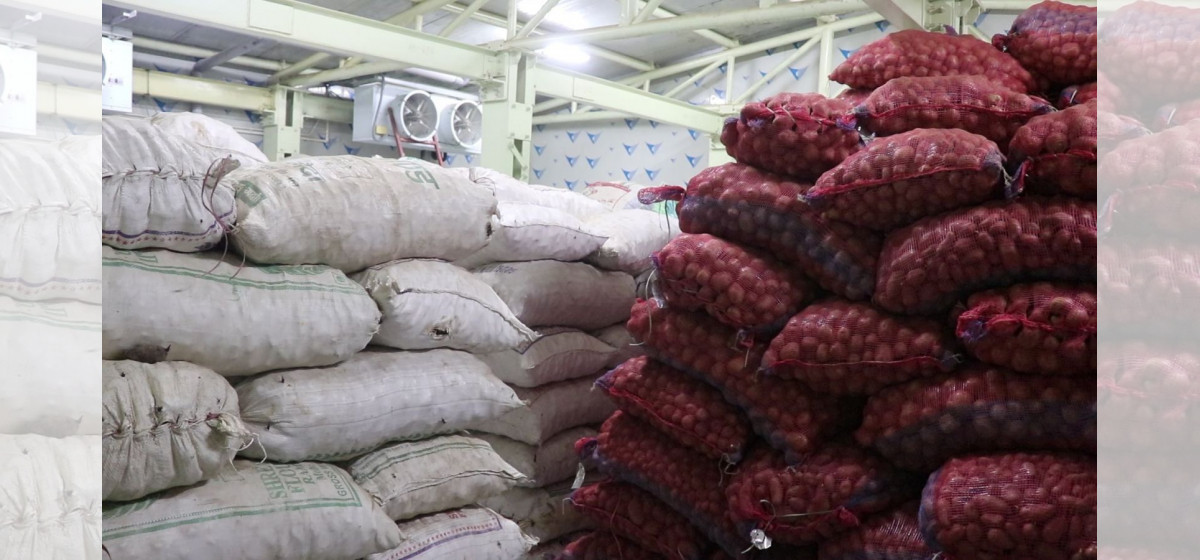
OR
National Assembly election sparks distrust in ruling coalition
Published On: January 26, 2024 08:00 AM NPT By: Republica | @RepublicaNepal

Maoist Center emerges as the largest party, UML the third party in the National Assembly
KATHMANDU, Jan 26: The results of the National Assembly (NA) elections have intensified the growing mistrust within the ruling coalition.
Champa Karki, a CPN (Maoist Center) candidate from Koshi Province, suffered defeat in Thursday's election for the position of NA member, fueling suspicions and mistrust within the ruling alliance. The defeat of the Maoist Center candidate in the province has deepened mistrust, prompting province level Maoist Center leaders to even end their alliance with the NC in the province.
It may be recalled that Kedar Karki, a Nepali Congress (NC) leader close to Shekhar Koirala-led faction within the party, had earlier secured the position of Chief Minister in Koshi Province with the support of the CPN-UML.
Chief Minister Karki had defied the NC's official decision and became the chief minister with UML's support. Despite breaking the agreement reached among the top leaders of the ruling alliance, a meeting of the top leaders, including rival faction leader Koirala, was held after Karki's appointment as Chief Minister, reaching an agreement to continue the alliance.
The UML, which initially participated in the Karki-led government, decided to withdraw from the government later. The defeat of Maoist Center's candidate in the NA election in Koshi Province has sparked a fresh debate about the fate of the ruling coalition. Party insiders say this is expected to deepen the growing mistrust within the ruling alliance, spanning from the center to the provinces.
The Maoist Center, which leads the government, is set to be the largest party in the National Assembly from March 4 following the results of the election held on Thursday.
In addition to the nominees whose terms end on February March 4, a total of 18 candidates from the ruling alliance, consisting of NC, Maoist Center, CPN (Unified Socialist) and Janata Samajwadi Party (JSP), have been elected in the NA election held for 19 members.
Champa Karki, the candidate from the ruling coalition in Koshi Province, was defeated by UML candidate Rukmini Koirala.
However, five Maoist Center candidates from other provinces were elected as NA members, making the party the largest in the upper house of the federal parliament. Likewise, 10 members of NC, 2 members of Unified Socialist, and 1 member of Janata Samajwadi Party have also been elected as members of the upper house of the federal parliament.
The Maoist Center currently has 16 MPs in the National Assembly, including the vice chair. Although the tenure of three members will expire on March 4, there will still be 18 Maoist lawmakers in the National Assembly.
In the House of Representatives elections held in November, 2022, the Maoist Center came third by winning 32 seats when it forged an electoral alliance with the NC. The NC, which became the largest party in the House of Representatives from the same election, is currently in third position in the National Assembly with 10 members.
Four members of NC will return home after the completion of their terms of office on March 4. But as 10 new members have been elected in Thursday’s election, the NC will have a total 16 members in the National Assembly. This will put NC in the second position.
The number of lawmakers of the Unified Socialist in the National Assembly will remain 8, with the election of 2 new members in Thursday’s election. The JSP, the fifth largest party in the National Assembly, has three MPs.
The result of 19 seats has reduced UML, the first party in the National Assembly, to the third position. The UML, which secured an unexpected victory from the women’s cluster in the Koshi Province, will be reduced to 10 members after March 4. Currently, the UML has a total of 18 members including Chairman in the National Assembly. Bamdev Gautam, nominated by the President, has already quit the UML.
UML's Rukmini Koirala was elected in the women's cluster of Koshi Province, defeating the ruling alliance's candidate Champa Karki. In the men's category, Krishna Prasad Sitaula of NC was elected. Anand Dhungana of NC and Pooja Choudhary of JSP were elected from the 'other' cluster under the two-post election held in Madhesh Province.
All four candidates of the alliance have secured victory in Bagmati Province. Bishnu Devi Pudasaini and Jit Jung Basnet of NC and Shrikrishna Adhikari of Maoist Center were elected as National Assembly members from the province.
The candidates of the ruling coalition were elected in the 3-seat election in Gandaki Province. In this province, Kiran Babu Shrestha and Padma Bahadur Pariyar were elected from the NC and Manrupa Sharma was elected from the Maoist Center.
Similarly, Bishnu Kumari Sapkota of NC was elected in the women's cluster in Lumbini Province's two-seat election.
Krishna Bahadur Rokaya of NC was elected from the ruling alliance in Karnali, Sabitri Malla of Unified Socialist from women cluster, and Bishnu BK of Maoist Center from Dalit cluster were elected in Karnali province.
All three candidates of the ruling alliance have been elected in Sudurpaschim Province. Renu Chand of Maoist Center and Narayana Dutt Bhatt of NC were elected from this province.
In the election held on Thursday, some local level chiefs elected independently, including the Mayor of Kathmandu Metropolitan City, Balendra Shah, did not participate in the election.
You May Like This

Complaints filed against two National Assembly candidates
KATHMANDU, Jan 10: Complaints have been filed against two candidates who filed their candidacies for the upcoming National Assembly (NA)... Read More...

52 candidates in the fray for 19 National Assembly seats
KATHMANDU, Jan 9: A total of 52 candidates have filed their nomination papers for the 19 National Assembly seat elections... Read More...

Election Commission prohibits vehicular movement on election day
KATHMANDU, May 13: Vehicular movement will be prohibited on Sunday for the first phase of local level elections. The Election Commission... Read More...
Just In
- NEA schedules five-day power cut across Kathmandu Valley for underground cable installation
- Hundreds of passengers including foreign tourists in distress as poor visibility halts flights to and from PRIA
- Nepal clinches thrilling victory over West Indies 'A' in T20 cricket match
- Capital Market Struggle Committee stages protest demanding protection of domestic investors (Photo Feature)
- Captain Paudel scores half-century in T20 match against West Indies 'A'
- Nine youths from Tanahu allegedly joining Russian army out of family contact for months
- West Indies 'A' sets Nepal a target of 205 runs
- Parliamentary committee directs govt to provide electricity tariff subsidies to cold storage facilities












-1200x560-wm_20240427144118.jpg)





Leave A Comment